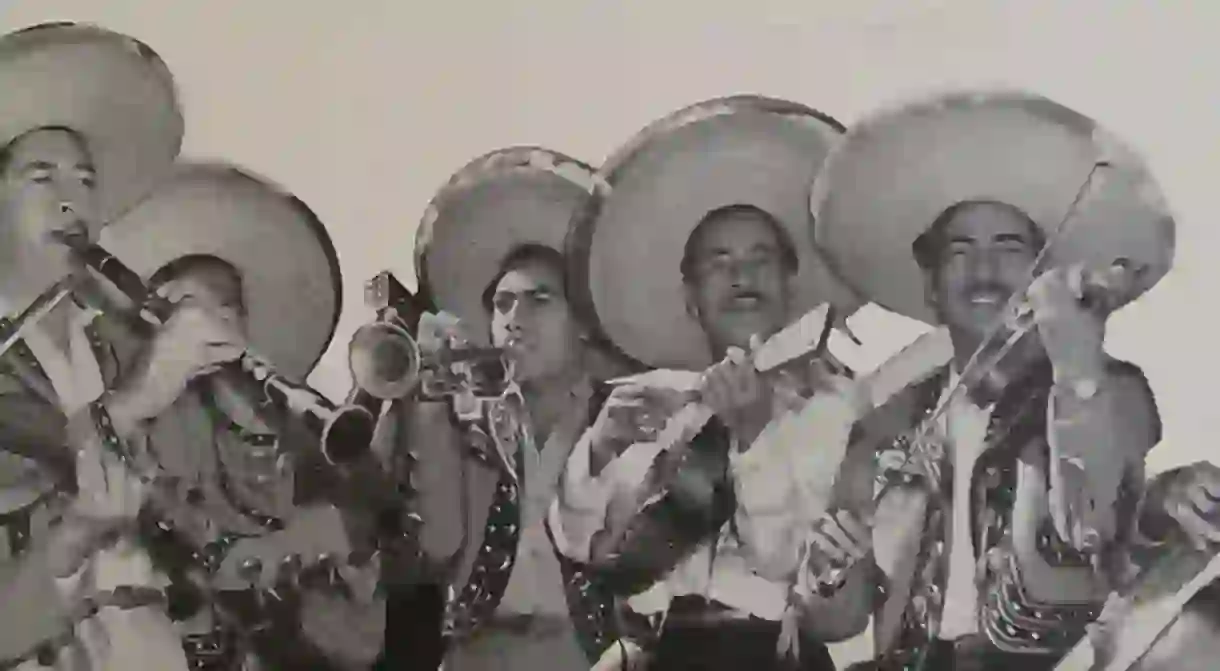Mexico's Most Iconic Music: An Introduction To Mariachi

A musical style deeply associated with Mexico, mariachi originally developed in western Mexico. While the majority accept that Jalisco is the birthplace of this music, nearby states Colima and Michoacán also lay claim to the development of this distinctive style. Wherever it came from, mariachi is now an intrinsic part of Mexico’s identity and its sense of national pride. Mariachi has even been deemed an element of Intangible Cultural Heritage by UNESCO. It’s importance within Mexican culture was further confirmed when Lázaro Cárdenas invited a Jalisciense mariachi group, Mariachi Vargas de Tecalitlán, to perform at his inauguration in Mexico City.
The word mariachi – which can actually refer to the music, group, or singular musician – is said to come from an indigenous word for the wood that formed the dancing platform, though this remains unsubstantiated and the roots of the word remain murky at best. However, whoever tells you mariachi comes from a confusion over the French word for marriage is incorrect! This music is meant to be danced to and is particularly associated with zapateado, a dance of Spanish origin dance that involves driving your heels into the dance floor to match the rhythm of the music. The jarabe, in particular the infamous and highly choreographed jarabe tapatío, is also intimately linked to mariachi. The male dancer’s charro outfit and the shawl and skirt of the female dancer are iconic.
Prior to the development of modern mariachi, however, there existed son jalisciense, a regional variation of the son style of music. One of the style’s most famed songs is ‘La Negra,’ which is often considered one of the most iconic of mariachi songs. Another notable son is ‘La Bamba,’ which is technically a son jarocho. Yet perhaps the most famous mariachi song is ‘Las Mañanitas,’ which is basically the Mexican stand-in for ‘Happy Birthday’ and can be heard at birthday celebrations nationwide. And of course, there’s always ‘La Cucaracha’.
https://www.youtube.com/watch?v=CQBf2JOfanQ
Modern mariachi developed from this style of music called son, which was popularized following the Spanish invasion of Mexico and the introduction of new stringed instruments previously unknown to the indigenous peoples of the country. These included violins, guitars, and brass instruments, the influence of which are clear to see in modern-day mariachi, which is dominated by the modified guitar typical of the musical style, as well as violins and trumpets. A complete mariachi group today boasts between six and eight violins, two trumpets and a guitar, as well as the distinctive rounded guitar called a vihuela, a bass guitarrón, and a Mexican folk harp.

Mariachi has long had a starring role in Mexican cinema, especially during the era of the popular charro genre films, starring actors such as Tito Guízar, Pedro Infante, and Jorge Negrete. These leading men would serenade their leading ladies by singing powerful mariachi songs. In fact, the distinctive charro outfit that is widely recognized as the ‘uniform’ of the mariachi musician was not actually incorporated into the style of the urban mariachi until the 1920s, and it became more popular with the rise of this cinematic genre. The suit features the close-cut, intricately detailed and embroidered jacket and high, close-cut wool pants. While typically black, mariachi today often wear white versions. This is of course all topped off with that most recognizable of Mexican accessories – the wide brimmed sombrero.
The International Mariachi and Charrería Festival in Guadalajara runs August 26th – September 4th.













